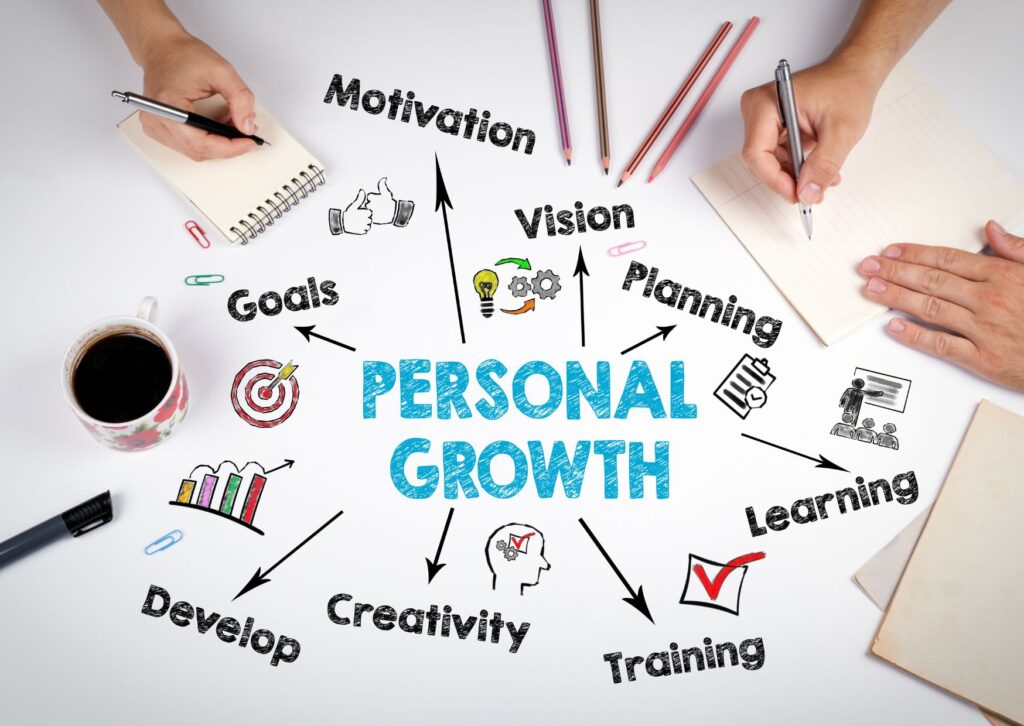10 Ways to Boost Employee Loyalty
Employee loyalty can be the cornerstone of a company’s success, driving productivity, fostering a positive work environment, and ultimately impacting the bottom line.
In this blog post, we’ll delve into the concept of employee loyalty, explore the factors that contribute to it, and discuss how to measure it effectively.
We’ll also share ten practical strategies to boost employee loyalty and discuss the pivotal role of management in fostering it.
Whether you’re a business owner, a manager, or an HR professional, this blog will provide you with valuable insights and actionable tips to help you cultivate a loyal and committed workforce.
Contents
What Factors Contribute to Employee Loyalty?
How to Check Employee Loyalty?
10 Ways to Boost Employee Loyalty
Management’s Role in Employee Loyalty
Unique Strategies to Increase Employee Loyalty
How Can Companies Reward Employee Loyalty?
Employee Loyalty Programme Ideas

What is Employee Loyalty?
Employee loyalty is a deeply ingrained commitment that employees feel towards the organisation they work for.
It’s a two-way street where the organisation values its employees, and in return, employees are dedicated and committed to their work and the company’s success.
Loyal employees are not just satisfied with their jobs, they are emotionally invested in their company.
They consistently go above and beyond their job descriptions, contribute ideas, take on additional responsibilities, and are less likely to leave the company.
Employee loyalty is not just about longevity in a company, it’s about the quality of the relationship between the employee and the organisation.
It’s about trust, mutual respect, and a shared sense of purpose.
In a nutshell, employee loyalty is a vital ingredient for a successful and thriving workplace.

What Factors Contribute to Employee Loyalty?
Several factors contribute to employee loyalty.
Understanding these can help organisations create a work environment that fosters loyalty and commitment.
Here are some of the key factors:
Job Satisfaction
Employees who are satisfied with their roles, responsibilities, and work environment are more likely to be loyal.
This includes factors such as work-life balance, job security, and opportunities for growth and development.
Recognition and Reward
Recognising and rewarding employees for their hard work and achievements can significantly boost loyalty.
Employee recognition can be in the form of verbal praise, awards, bonuses, or promotions.

Leadership and Management
Effective leadership and management play a crucial role in fostering employee loyalty.
Leaders who are supportive, transparent, and fair can inspire loyalty among their team members.
Workplace Culture
A positive and inclusive workplace culture can foster a sense of belonging among employees, leading to increased loyalty.
This includes factors such as respect for diversity, open communication, and a strong sense of teamwork.
Employee Engagement
Engaged employees are more likely to be loyal.
This involves feeling connected to the company’s mission and values, having a clear understanding of one’s role and how it contributes to the company’s success, and having opportunities to participate in decision-making processes.
Trust and Respect
Employees who trust their leaders and feel respected are more likely to be loyal.
This involves open and honest communication, ethical business practices, and treating employees with dignity and respect.
Compensation and Benefits
Competitive pay and benefits can also contribute to employee loyalty.
This includes not only salary, but also benefits such as health insurance, retirement plans, and flexible work arrangements.
By understanding and addressing these factors, organisations can create a work environment that fosters employee loyalty.

How to Check Employee Loyalty?
Measuring employee loyalty can be a bit tricky as it involves assessing intangible aspects such as commitment, satisfaction, and emotional investment.
However, here are several methods that can help gauge the level of loyalty among your employees:
Employee Surveys
Conducting regular employee surveys is one of the most effective ways to measure employee loyalty.
These surveys can include questions about job satisfaction, commitment to the company, willingness to recommend the company to others, and overall engagement levels.

Exit Interviews
When employees leave the company, exit interviews can provide valuable insights into their reasons for leaving and their overall experience at the company.
If many employees cite similar issues, it may indicate a problem that needs to be addressed to improve loyalty.
Employee Retention Rate
A high employee retention rate often indicates a high level of employee loyalty.
If your employees are staying with the company for a long time, it’s a good sign that they are loyal.
Performance Metrics
Loyal employees are often more productive and engaged in their work, which can be reflected in their performance metrics.
High levels of productivity, quality of work, and willingness to take on additional responsibilities can indicate employee loyalty.
Observation and Communication
Regular communication and observation can also provide insights into employee loyalty.
Loyal employees often demonstrate a positive attitude, show enthusiasm for their work, and express a strong commitment to the company’s goals and values.
Remember, it’s essential to approach this process with sensitivity and respect for employees’ privacy.
The goal is to create a better work environment that fosters loyalty, not to invade employees’ personal space or make them feel uncomfortable.

10 Ways to Boost Employee Loyalty
Here are 10 ways to boost employee loyalty for continuous success within your company.
1. Foster a Positive Workplace Culture
Creating a positive and inclusive workplace culture is one of the most effective ways to boost employee loyalty.
This involves promoting open communication, respect for diversity, and a strong sense of teamwork.
Encourage collaboration and idea-sharing, and make sure every employee feels valued and included.
A positive workplace culture can foster a sense of belonging among employees, making them more likely to stay with the company for the long term.
2. Provide Opportunities for Growth and Development
Employees are more likely to be loyal to a company that invests in their personal growth and development.
This can be achieved by providing regular training and development opportunities, promoting from within, and offering clear career progression paths.
Encourage employees to expand their skills and knowledge, and provide them with the resources they need to do so.
This not only helps employees feel valued and engaged, but it also benefits the company by developing a more skilled and competent workforce.

3. Recognise and Reward Employee Achievements
Recognising and rewarding employees for their hard work and achievements is a powerful way to boost loyalty.
This can be as simple as a verbal praise in a team meeting, a note of appreciation, or more formal recognition programs like ‘Employee of the Month’.
Consider implementing a rewards system that includes bonuses, raises, or promotions for high-performing employees.
When employees feel that their efforts are valued and recognised, they are more likely to be committed to their work.
4. Offer Competitive Compensation and Benefits
Money isn’t everything, but offering competitive compensation and benefits is crucial in fostering employee loyalty.
Ensure your salaries are competitive with similar roles in your industry and location.
In addition to a fair wage, offer benefits that can improve your employees’ quality of life.
This could include health insurance, retirement plans, flexible work arrangements, or wellness programs.
When employees feel that they are fairly compensated for their work, they are more likely to stay loyal to the company.

5. Encourage Work-Life Balance
Promoting a healthy work-life balance is essential in boosting employee loyalty.
Employees who feel they have time for personal interests and family are more likely to stay with a company.
This can be achieved by offering flexible working hours, remote work options, and ensuring that employees aren’t overworked.
Encourage employees to take their full lunch breaks, use their annual leave, and avoid working outside of business hours.
A healthy work-life balance can lead to happier, more satisfied employees who are more likely to be loyal to your company.
6. Foster Open and Honest Communication
Open and honest communication is the foundation of a loyal workforce.
Encourage employees to voice their ideas, concerns, and feedback.
Regularly update them about the company’s goals, progress, and any changes that may affect them.
This not only makes employees feel valued and involved but also builds trust and transparency, which are key to employee loyalty.
Remember, communication should be a two-way street.
Listen to what your employees have to say and take their input seriously.
7. Implement Wellbeing Programs
Employee wellbeing is directly linked to employee loyalty.
Implementing wellbeing programs shows employees that the company cares about their health and happiness, not just their productivity.
These programs could include mental health resources, wellbeing workshops, fitness programs, healthy eating initiatives, or on-site chair massage.
Some companies even offer perks like on-site gyms, yoga classes, or free healthy snacks.
When employees feel that their wellbeing is a priority, they are more likely to feel a sense of loyalty to the company.
8. Build Trust with Ethical Business Practices
Trust is a fundamental component of employee loyalty.
Companies that operate with integrity and ethical business practices are more likely to earn the trust of their employees.
This includes being honest and transparent in all business dealings, treating all employees and customers fairly, and taking responsibility for any mistakes.
It also involves demonstrating corporate social responsibility, such as sustainable business practices and community involvement.
When employees trust their company and are proud of its ethical stance, they are more likely to remain loyal.
9. Involve Employees in Decision Making
Involving employees in decision-making processes can significantly boost their loyalty.
Employees that feel their opinions are valued and contribute to the company’s direction, are more likely to be committed to the organisation.
This can be achieved by seeking employee input on important decisions, involving them in strategy team meetings, or setting up suggestion schemes for improvements.
Remember, it’s not just about asking for their opinions, it’s also about taking their suggestions seriously and implementing viable ideas.
10. Create a Sense of Purpose
Employees are more likely to be loyal to a company that provides them with a sense of purpose.
This involves connecting their work to the larger mission and values of the company.
Regularly communicate the company’s mission, how each role contributes to this mission, and celebrate the achievements towards these goals.
When employees feel that their work has meaning and that they are contributing to something bigger than themselves, they are more likely to be loyal and committed to the company.

Management’s Role in Employee Loyalty
Management plays a pivotal role in fostering employee loyalty.
As leaders, managers have the power to shape the work environment and influence the attitudes and behaviours of their team members.
Here’s how managers can contribute to boosting employee loyalty:
Lead by Example
Managers should model the behaviours they want to see in their team members.
This includes demonstrating commitment to the company, treating everyone with respect, and adhering to the company’s values and ethical standards.
Provide Support and Guidance
Managers should be available to provide support and guidance to their team members.
This includes helping them overcome challenges, providing constructive feedback, and helping them grow and develop in their roles.
Recognise and Appreciate
Managers should regularly recognise and appreciate their team members’ hard work and achievements.
This can be as simple as a word of thanks or a note of appreciation, or more formal recognition programs.

Promote Open Communication
Managers should foster an environment of open and honest communication.
They should encourage team members to share their ideas, concerns, and feedback, and should be open and responsive to this input.
Foster a Positive Work Environment
Managers have a significant influence on the work environment.
They should strive to create a positive, inclusive, and engaging environment where everyone feels valued and included.
Invest in Employee Development
Managers should invest in their team members’ growth and development.
This includes providing training and development opportunities, promoting from within, and providing clear career progression paths.
By fulfilling these roles effectively, managers can significantly boost employee loyalty, leading to a more engaged, productive, and committed workforce.

Unique Strategies to Increase Employee Loyalty
While traditional strategies for increasing employee loyalty are essential, there are also unique approaches that can make a significant impact. Here are some innovative strategies:
Mentorship Programs
Establishing a mentorship program where experienced employees guide newer or less experienced employees can foster a sense of belonging and loyalty.
It can also help in knowledge transfer and skill development.
This can be beneficial for both the employee giving and the employee receiving.
The employee giving, feels like they’re doing something positive and impactful in their role.
Whereas the employee receiving, feels as though they have support and guidance.

Employee Empowerment
Empower employees by giving them autonomy in their roles.
Let them make decisions and take ownership of their work.
This can boost their confidence and loyalty towards the organisation.
You can also provide training that can help employees feel empowered.
Workshops like “Create Life-Changing Habits” and “Build Unstoppable Confidence” are fantastic ways to empower employees.

Social Events and Team Building Activities
Regular social events and team-building activities can strengthen relationships among employees and foster a sense of community, leading to increased loyalty.
Social events could be team meals, company away days, leadership retreats, trips to the theatre, whatever works within your company.
Involve employees in the decision-making and find something that works for most.
Why not check out our blog on “Planning a Successful Team Away Day“
Corporate Social Responsibility (CSR) Initiatives
Involving employees in CSR initiatives can give them a sense of purpose and pride in the company, fostering loyalty.
This could include volunteering, charity work, or sustainability projects.
Giving back can be so powerful and allowing employees to experience this will likely increase their loyalty.

Transparent Career Pathways
Clearly outline career pathways within the organisation.
When employees can see a future within the company and understand the steps to get there, they are more likely to remain loyal.
Personalised Employee Experiences
Recognise that each employee is unique and personalise their experiences.
This could include personalised learning and development plans, flexible working arrangements tailored to individual needs, or personalised rewards.
Remembering employee birthdays and providing a nice gift is a great way to show employees you care and therefore contribute to employee loyalty.
Regular Check-Ins
Instead of annual reviews, have regular check-ins with employees to discuss their progress, address any issues, and set goals.
This ongoing dialogue can increase engagement and loyalty.
Family-Friendly Policies
Implement policies that support employees’ families, such as flexible schedules for parents, maternity and paternity leave, or family events.
When employees feel their personal life is valued, they are more likely to be loyal to the company.
For many people, family is everything. Fostering a culture where you support this can help employees feel looked after.
These unique strategies, combined with traditional ones, can significantly enhance employee loyalty, leading to a more committed and productive workforce.

How Can Companies Reward Employee Loyalty?
Rewarding employee loyalty is crucial in recognising their commitment and encouraging continued dedication.
Here are some ways companies can reward loyal employees:
Performance Bonuses
Offering bonuses for exceptional work or meeting certain goals can be a great way to reward loyalty.
It shows employees that their hard work and dedication are noticed and appreciated.
Promotions
Promoting loyal employees is a powerful way to reward them.
It not only provides them with a career advancement opportunity but also shows other employees the benefits of loyalty.

Recognition Programs
Implementing recognition programs, such as ‘Employee of the Month’ or ‘Years of Service’ awards, can publicly acknowledge and reward employee loyalty.
Additional Annual Leave
Rewarding loyal employees with extra annual leave can show appreciation for their dedication and provide them with a well-deserved break.
To go a step further, companies could provide funds towards an overseas trip.
Flexible Work Options
Offering flexible work options, such as remote work or flexible hours, can be a valuable reward for loyal employees.
It shows that the company respects their personal time and work-life balance.

Professional Development Opportunities
Offering opportunities for further training or education can be a great reward.
It shows employees that the company is invested in their career growth and values their contributions.
Special Perks
Special perks, such as a prime parking spot, gym memberships, or even a company-sponsored trip, can be unique and exciting ways to reward employee loyalty.
Personalised Rewards
Personalised rewards, such as a gift related to an employee’s hobby or interest, can show that the company values them as an individual.
It also shows that the company understands who they are and what an employee finds important. (Providing you get the reward correct))
Remember, the key to rewarding employee loyalty is to make it meaningful and personal.
The reward should reflect the employee’s contributions and show that the company genuinely appreciates their loyalty.

Employee Loyalty Programme Ideas
Employee Loyalty programmes can consist of a range of things. Here are a few suggestions:
Years of Service Awards
Recognise and celebrate employee milestones with Years of Service Awards.
For each significant milestone (e.g., 1 year, 5 years, 10 years), employees receive a certificate and a unique gift that symbolises their commitment to the company.
Loyalty Points System
Introduce a Loyalty Points System where employees earn points for various achievements such as meeting targets, demonstrating company values, or going above and beyond their job roles.
These points can be redeemed for a variety of rewards such as gift cards, extra annual leave, or special experiences.
Learning and Development Opportunities
Offer loyal employees opportunities for further learning and development.
This could include workshops, online courses, or even sponsorship for higher education.
This not only rewards loyalty but also helps in building a more skilled and competent workforce.
Wellness Perks
Provide wellness perks such as gym memberships, wellness retreats, health insurance discounts, hire a massage company.
This shows employees that the company cares about their health and wellbeing.

Flexible Work Arrangements
Reward loyal employees with flexible work arrangements.
This could include the option to work remotely, flexible work hours, or compressed work weeks.
This shows respect for their personal time and work-life balance.
Social Recognition
Regularly recognise and appreciate employees’ efforts and achievements in team meetings, company newsletters, and on the company’s social media platforms.
This boosts their morale and reinforces their loyalty.
Career Advancement Opportunities
Provide loyal employees with clear career advancement opportunities.
This could include priority consideration for promotions, leadership training, or involvement in strategic projects.
Remember, the key to a successful Employee Loyalty Programme is regular communication and feedback.
Keep your employees informed about the programme, regularly seek their feedback, and make necessary adjustments to ensure the programme remains relevant and effective.

Employee loyalty is a vital component of a successful business.
It fosters a positive work environment, increases productivity, and contributes largely to the company’s growth and success.
Understanding what employee loyalty is, the factors that contribute to it, and how to measure it, can allow you to implement effective strategies to boost it.
Whether it’s through fostering a positive workplace culture, providing growth opportunities, recognising achievements, or implementing an Employee Loyalty Programme, every effort counts.
Remember, loyal employees are your company’s biggest advocates and assets.
A happy workforce is a productive workforce.
FAQs
What is Employee Loyalty?
Employee loyalty is a commitment that employees feel towards their organisation. It’s a mutual relationship where the organisation values its employees, and in return, employees are dedicated to their work and the company’s success.
What Factors Contribute to Employee Loyalty?
Factors include job satisfaction, recognition and reward, effective leadership and management, positive workplace culture, employee engagement, trust and respect, and competitive compensation and benefits.
How Can Companies Reward Employee Loyalty?
Companies can reward loyalty through performance bonuses, promotions, recognition programs, additional annual leave, flexible work options, professional development opportunities, special perks, and personalised rewards.
Author
Tyler Lowe – Health & Wellbeing Speaker
BSc Sport & Exercise Rehabilitation


